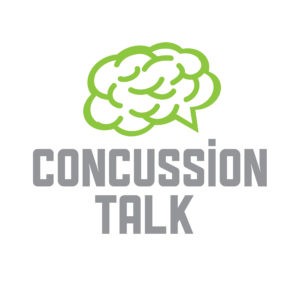The benefits of exercising, keeping fit and eating healthily have been impressed on us (society, specifically North American society in which I live) for a long time. Unfortunately, it hasn’t exactly caught on. It came close when Jared lost a bunch of weight eating subs everyday. Although Jared is to be commended for deciding to eat healthier and smaller portions, that campaign ended up being a better marketing gimmick than a healthy eating trend. Magazines, ranging from fitness to news, have urged us to exercise and eat healthily as well, but these attempts have generally failed when the timelines to do this fall outside of one week – a month at the longest. Magazines also compete with each other to give “the best” advice. However, “the best” advice is no match for “the easiest” advice and as magazines compete with each other, conflicting diets and exercise routines can very easily overwhelm someone whose commitment to keeping fit equates to their commitment to picking up a magazine. I should be fair, some of these routines actually work and give good advice about being healthy. Another option is using common sense. We’ve been cautioned about remaining sedentary and eating unhealthily and the negative consequences that has for our heart, one of our vital organs. But what about another vital organ, the brain?
The importance of exercise and nutrition (the first two articles) for brain health cannot be understated. Exercise, notably aerobic exercise, is like practice for your brain’s neural pathways. The better trained your neural pathways are, the stronger and more efficient they are. Not only that, aerobic exercise also improves the adaptive abilities of the brain. When I was brain injured, some pathways in my brain were disturbed, but my brain has found new routes in which it can deliver the same message to the rest of my body. My time in physical rehabilitation was practice for my brain, strengthening these new pathways and making them more efficient. After enjoying so much physical activity prior to my brain injury, I, of course, was eager to recover as much as I could. Therefore I brought a good-spirited enthusiasm to my rehabilitation. My physios also told me that I was easy to work with because  I understood my body, I could push it and I was confident it would adapt. The same is true for sports, you practice, push yourself and your body adapts, making it ready and strong for the game/meet/match, etc. While I got into this whole mess because I was cycling and because I was pushing myself, I am better able to recover for the same reasons.
Bringing me to nutrition. When I was training for triathlons nutrition consisted of providing my body with the energy and nutrients it needed to prepare and recover from practice. This would be sensible food; apples, bananas, pasta, tuna sandwiches, etc. When I wasn’t readying myself for practice, when I was watching the game, hanging out with friends and frankly anytime I was doing my undergraduate degree (whether or not I had water polo practice), I ate junk. Tasty junk mind you, but junk and lots of it. Nutrition, however, is also extremely important for maintaining and improving brain health. Simple things like eating more berries, colourful fruits, nuts and beans, spices and vegetables , rich in flavonoids, which “may affect some of  the same signaling pathways involving BDNF thereby influencing memory.” BDNF is  brain-derived neurotrophic factor, a neurotrpohin. Neurotrophins are important brain proteins that support the health, survival and growth of brain cells. They are found at high levels in the brains of children during development and also, for a shorter time, in adults after a brain injury (Heal your Brain). Eating healthily doesn’t end there and it certainly doesn’t mean you should wait until you’ve had a stroke or traumatic brain injury to start. Again, it’s common sense and choice.
He’s not talking about eating healthily or exercising, but Louis C.K. is one of, if not the, funniest guy around. In this bit he talks about his ankle hurting and about how the doctor tells him that stretching his ankle for 30 minutes a day is “just a new thing you do now”, later about how he’s got to weigh intestinal damage vs. his ankle not hurting. This is not some crazy injury that Louis C.K. is talking about, it’s simply wear and tear. The same is true of brain and heart health vs. exercise and nutrition. You have t0 weigh eating junk food and not exercising vs. future potential of heart and brain problems. Admittedly, the younger you are the more difficult it is to appreciate the future. But, there it is. I know I still don’t appreciate what being significantly older will feel like, but I also know that I’m not going to substitute salad for fish and chips. It boils down simply to choice and willingness to accept the consequences later in life.

August 14, 2012
thank you I learned a lot from your article